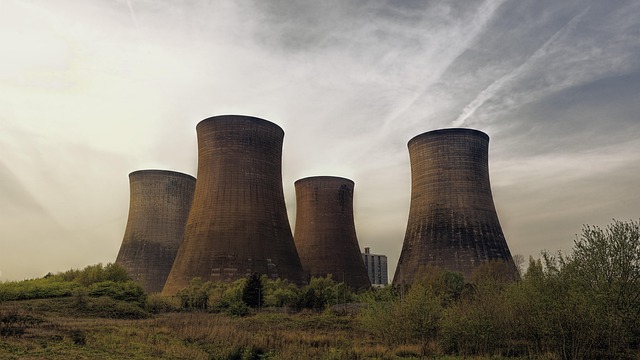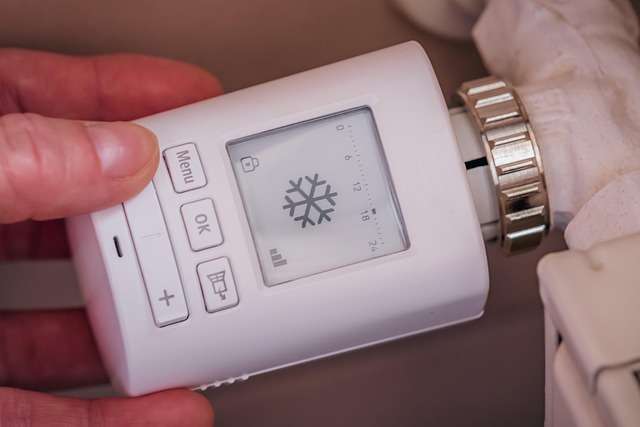Commercial electric boilers are a sustainable and efficient solution for heating needs, offering precise control over heating schedules, high capacity options, and scalability for various industry requirements. Their advanced design optimizes energy use by aligning with peak demand periods, reducing operational costs and carbon footprints. With rapid response capabilities and programmable controls, these boilers provide comfortable indoor temperatures while maximizing energy efficiency.
Commercial electric boilers are transforming the way businesses manage heating. These advanced systems offer a sustainable and cost-effective alternative to traditional gas or oil boilers, with the added flexibility of programmable features. In this article, we explore the benefits of commercial electric boilers and delve into their key capabilities, particularly multiple daily heating schedules. By optimizing these programs, businesses can achieve significant energy efficiency and substantial cost savings.
- Understanding Commercial Electric Boilers and Their Benefits
- Key Features of Programmable Models: Multiple Daily Heating Schedules Explained
- Implementing and Optimizing Heating Programs for Energy Efficiency and Cost Savings
Understanding Commercial Electric Boilers and Their Benefits

Commercial electric boilers are designed to meet the demanding hot water and heating needs of businesses, institutions, and industrial facilities. Unlike traditional gas or oil-fired boilers, these advanced systems rely on electric heating systems for a cleaner, more energy-efficient operation. By leveraging commercial boiler technology, buildings can achieve optimal comfort and efficiency while reducing their environmental footprint.
One of the key advantages of commercial electric boilers is their ability to support multiple daily heating schedules. This flexibility allows facilities to precisely control when and how much heat is generated, aligning with peak demand periods and saving energy during off-peak times. Moreover, high capacity electric boilers and modular boiler systems offer scalability and adaptability, catering to the diverse needs of various industries. In terms of institutional heating and commercial HVAC systems, electric hot water boilers are a reliable and sustainable solution that contributes to a more eco-friendly future.
Key Features of Programmable Models: Multiple Daily Heating Schedules Explained

One of the standout features of modern programmable commercial electric boilers is their ability to support multiple daily heating schedules. This functionality allows businesses and institutions to precisely control when and how much heat is generated, leading to significant energy savings. By programming specific times for heating activation and deactivation, these boilers can optimize energy use based on occupancy patterns and environmental conditions, making them ideal for large facilities with varying needs throughout the day.
Multiple daily heating schedules are particularly beneficial for commercial HVAC systems, electric hot water boilers, and modular boiler systems. They enable efficient management of institutional heating, ensuring that energy-intensive processes occur during off-peak hours when electricity rates are lower. This not only reduces operational costs but also contributes to a facility’s overall sustainability efforts by minimizing its carbon footprint. With advanced commercial boiler technology, businesses can now enjoy high-capacity electric boilers that offer both powerful performance and energy efficiency.
Implementing and Optimizing Heating Programs for Energy Efficiency and Cost Savings

Implementing optimized heating programs is a powerful strategy for commercial electric boilers to enhance energy efficiency and reduce operational costs. By tailoring temperature settings and runtime according to specific schedules, businesses can ensure their facilities are heated only when needed. This approach is particularly beneficial during off-peak hours when electricity rates might be lower, allowing for significant cost savings. Advanced control systems enable precise adjustments, taking into account factors like weather conditions and occupancy patterns.
For instance, a modular boiler system with high-capacity electric boilers can be programmed to reduce heat output during unoccupied periods, minimizing energy waste. Electric heating systems offer the advantage of rapid response, allowing for precise temperature control in institutional settings. As an example, commercial HVAC systems can maintain comfortable indoor temperatures during business hours and gradually lower them overnight, ensuring energy efficiency without compromising occupant comfort or safety.
Programmable commercial electric boilers, with their ability to support multiple daily heating schedules, offer a powerful tool for optimizing energy efficiency and cost savings. By leveraging these advanced models, businesses can precisely control temperature settings at different times of the day, ensuring optimal comfort while minimizing energy waste. Implementing tailored heating programs not only reduces operational costs but also contributes to a more sustainable environment. In today’s competitive market, embracing such innovations is a strategic move for any business aiming to stay ahead in the realm of energy management.






